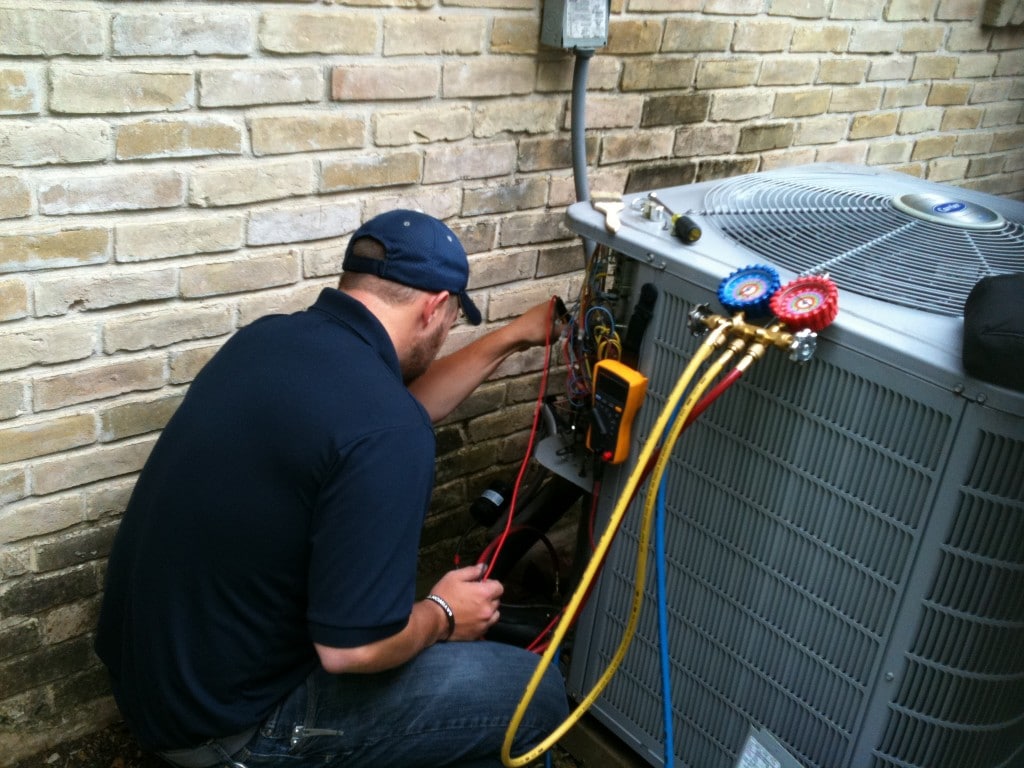When it comes to the comfort of your home, your HVAC system is the workhorse that delivers all year long. When the summer heats up, you want to rely on your air conditioner to keep your home cool and humidity-free. Similarly, when temperatures dip below freezing during the winter, you want a reliable heating system that can deliver warm air throughout the season. Depending on where you live, however, seasonal changes can place high demands on your HVAC system. Similar to getting your car serviced before a big road trip, it makes sense that you would want to have your HVAC system looked at before the rigors of blazing summer or harsh winter.
Your heating system can take a beating during the winter while trying to maintain a constant temperature in your home. Your equipment can experience small cracks, leaks, worn-down components, and other small issues throughout normal use. For many systems, these problems don’t pose an immediate issue, and they can go unnoticed. This is why most manufacturers recommend you perform maintenance on your heating system annually. In many cases, your system might run for several years without service. However, annual maintenance could increase the life and effectiveness of your unit. Let’s take a closer look at regular maintenance on your heating system.
How often should you service your heating system?

As discussed, most manufacturers recommend that you perform annual service on your HVAC system. Your air conditioner should be serviced in the spring, and your heating system should be looked at in the fall. It makes sense to service your heating equipment in the fall to prepare for the demands of the winter. Going back to your car, why do you service it before a road trip? An oil change and a tune-up ensure your vehicle performs well on the road. Similarly, a tune-up and cleaning for your heating system will ensure it runs at peak efficiency and performance all winter.
What is involved in heating system service?

When you have preventative maintenance done on your heating system, the technician will inspect and clean all aspects of the equipment. The HVAC technician is trained to inspect your heat pump or furnace for issues that might decrease energy efficiency, cause safety problems, or lead to larger malfunctions. Everything from your vents and thermostat to the heat exchanger and burner assemblies will be inspected and tested. Annual maintenance also includes cleaning the equipment. Dirt, dust, and other things can clog up the system and slow it down during the year. Your system will be thoroughly cleaned to ensure that it is running efficiently.
As part of routine maintenance, homeowners can do a few things between services to keep the system running. You should check and change the air filters regularly to ensure that your system pulls clean air efficiently into your home. You will also want to check the units for any debris or foliage that might be impacting your unit’s air intake. Additionally, return vents must be checked and cleaned to ensure proper airflow. Performing general maintenance tasks between regular checkups can help your system stay on track.
What are the benefits of regular heating system maintenance?
The average HVAC system should last around 20 years, according to most experts. With regular maintenance, however, you might be able to extend the life of your equipment by as much as 30 percent. Regular maintenance will catch and address any issues that might be slowing your system down or that pose a threat to the overall health of your system. Performing routine heating maintenance will ensure that your system produces clean, comfortable air for many winter seasons.
Your home’s heating system is a powerhouse in the winter, ensuring that your home is comfortable no matter the temperatures outside. Performing regular maintenance each fall will help you avoid expensive repairs and ensure that your system is ready for the demands of the coming season.


